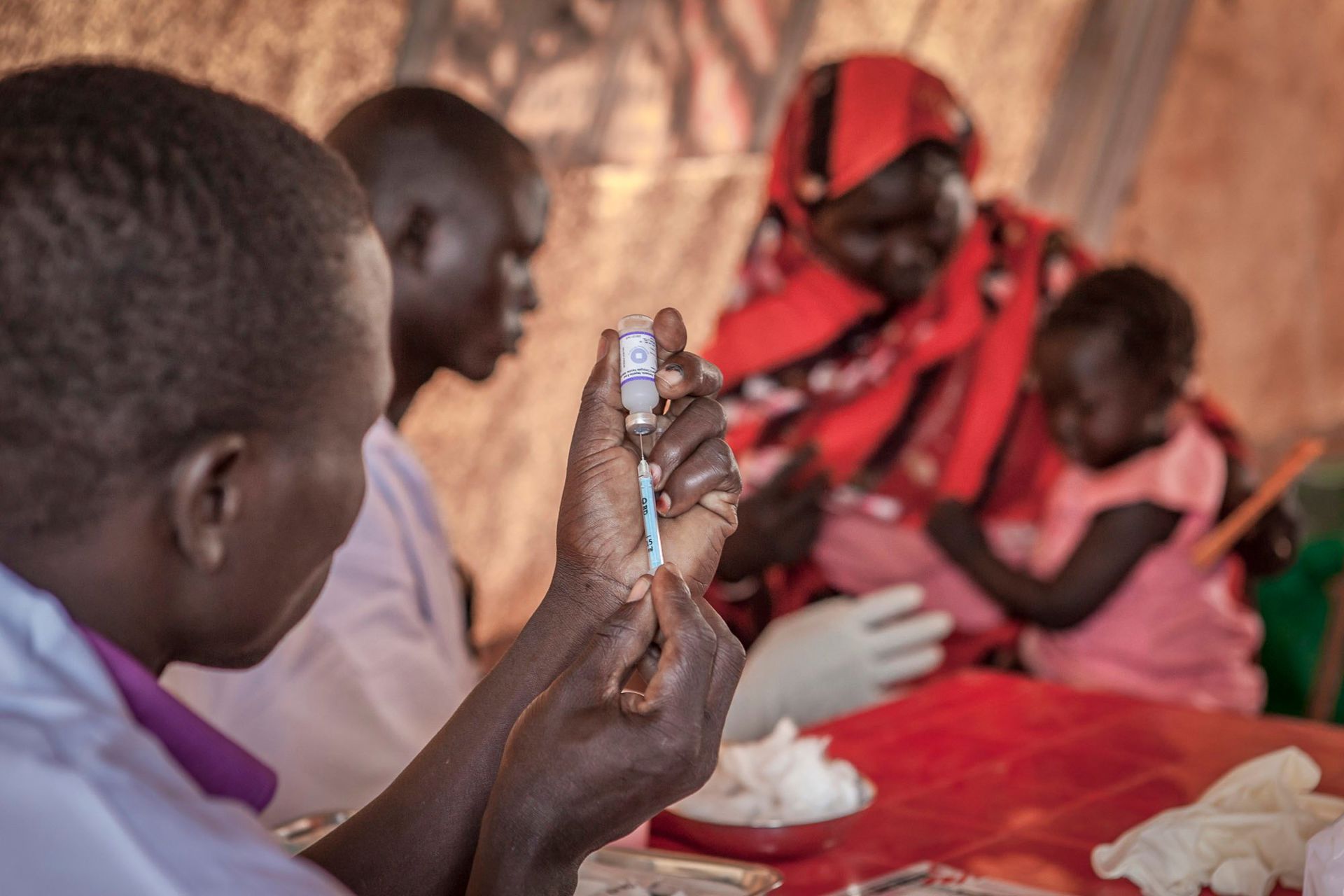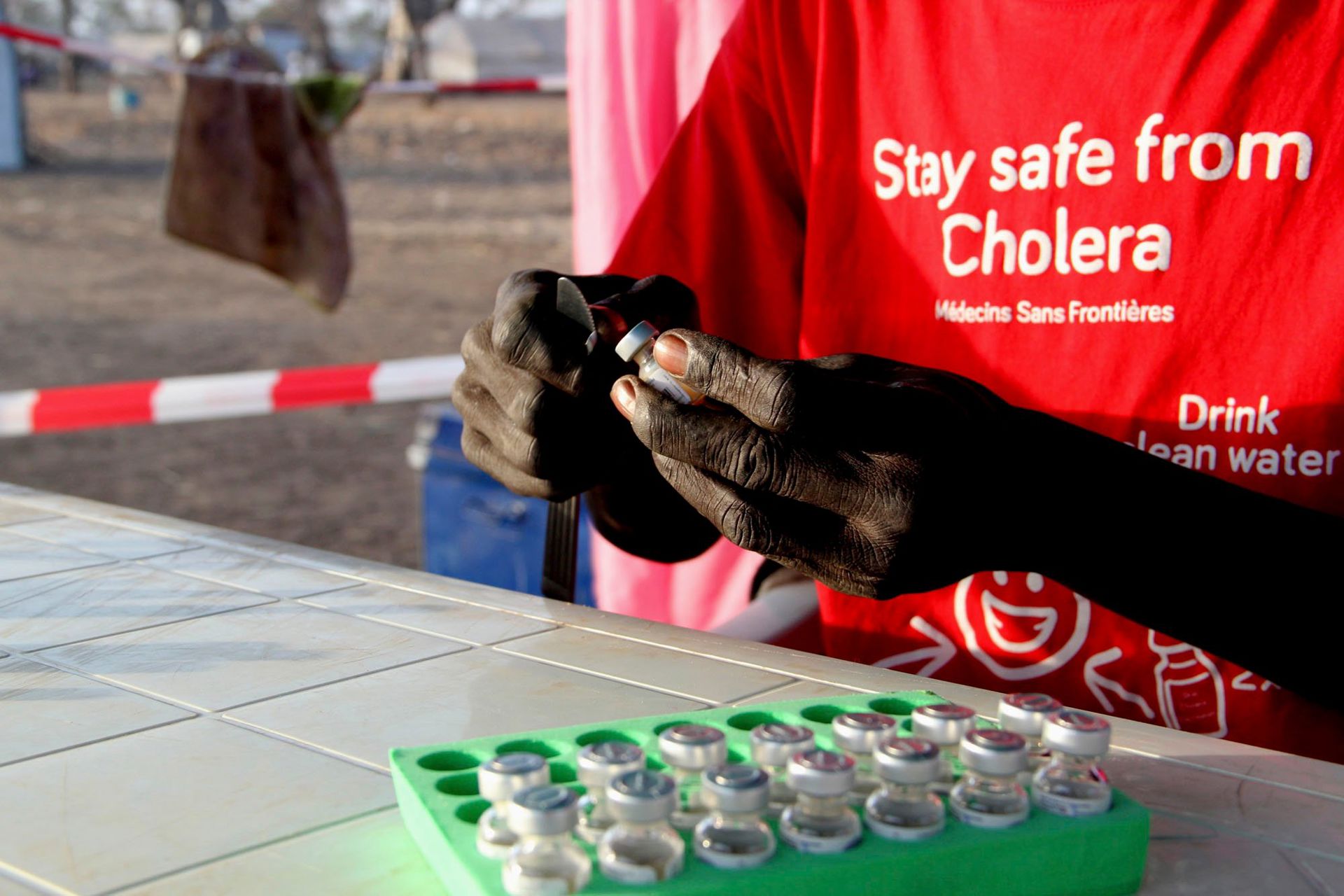New MSF study shows a tetanus vaccine remains effective for up to a month when used outside of a strict cold chain
The need for vaccines to be kept constantly cold is proving a major barrier in improving poor immunisation coverage rates, with one in five children born each year missing out on life-saving vaccinations, Médecins Sans Frontières (MSF) said. But the logistical hurdles imposed by the ‘cold chain’ – the requirement to keep vaccines between 2°C and 8°C – could be eased if pharmaceutical companies generated more information on how sensitive to heat vaccines really are; a new MSF study on a tetanus vaccine confirms that some vaccines can be safely used outside the cold chain.
“In our experience, the need to keep vaccines in the cold chain all the way to the patient is quite simply one of the biggest barriers to effective vaccination responses by groups like MSF”, said Dr Greg ELDER, Deputy Director for Operations at MSF. “If more vaccines could be safely used outside of the cold chain for a period of time, particularly for the last stretch of their journey to people living in the most remote areas, we’d be able to reach far more children.”
Currently, the requirement for a vaccine to be transported and stored in a constant cold chain, from the time it leaves the manufacturer until it is used at a vaccination point, places huge logistical challenges on vaccination providers who must ensure that the cold chain is maintained each step of the way. Although this is not a significant challenge in wealthy countries, it is a considerable obstacle in developing countries, particularly in areas that are hot, isolated and lack reliable electricity for refrigeration. This difficulty in getting vaccines to some places is a significant cause of low immunisation rates in some countries, leading to more than 22 million children below the age of one who are not fully vaccinated each year.
But growing evidence shows that some vaccines can be safely kept out of the cold chain for certain periods of time. Called the ‘controlled temperature chain’ (CTC), some vaccines can leave the cold chain for a short period just before they’re used, which would ease the logistics of transporting the vaccine in the last, critical, stage of its journey, from district or health post to remote villages.
“This is a barrier that can be addressed and overcome; it’s a question of political will and of acting to meet the needs of kids in developing countries rather than just for the economic bottom-line”, said Kate ELDER, Vaccines Policy Advisor for MSF’s Access Campaign. “To ease the burden of the cold chain, we need pharmaceutical companies to use their existing data, and generate new information where needed, to show the true heat stability of their vaccines and demonstrate that some are effective when used outside of the strictest cold chain. This has been done before, but in very rare cases – we need more companies to step up.”
Only one vaccine so far has been recommended for use by World Health Organization (WHO) in CTC conditions. The MenAfriVac vaccine, used to vaccinate against strains of meningitis A in the sub-Saharan African meningitis belt, was approved in November 2012 for use at up to four days at up to 40°C.
MSF’s research arm Epicentre, has recently conducted a study showing that one tetanus toxoid vaccine can also be safely used in CTC conditions. During 2013, Epicentre, MSF, and partners carried out a study to determine the stability and continued efficacy of the Serum Institute of India’s tetanus toxoid vaccine, when kept in a controlled temperature chain at ambient temperatures of up to 40°C for up to 30 days. In Chad, the study compared the vaccine’s effectiveness in two groups of women who received the vaccine, either after being kept in a strict cold chain, or out of the cold chain for up to 30 days. The study showed that both groups of women were adequately protected against tetanus.
“The study results suggest that the tetanus vaccine from the Serum Institute of India is stable, safe and immunogenic outside of the strict cold chain”, said Dr Rebecca GRAIS, Director of Epidemiology at Epicentre. “This result I hope will encourage clear guidelines on the more flexible use of the tetanus toxoid vaccine in CTC conditions, so that more people who live in remote areas can be immunised.”
The positive results from the Epicentre study, and the precedent of re-licensing of the MenAfriVac vaccine, should push pharmaceutical companies to more actively generate and release data on heat-stable vaccines and seek approval to re-label them for use outside of a strict cold chain.
“In the immediate term, the onus is on the pharmaceutical companies to generate data and take the initiative with regulatory bodies so that their vaccines can be relicensed for use outside of the strict cold chain”, said Ms Elder. “Longer-term we want the next-generation vaccines to be developed and licenced with ambitious heat stability targets so that this problem is avoided from the outset.”
Heat-stable vaccines urgently needed to reach the one in five children missed by immunisation worldwide
28 Apr 20144 Read Time

Field News
South Sudan: MSF rapidly scales up response to contain cholera outbreak
27 May 20142 Read Time

Latest News & Stories

